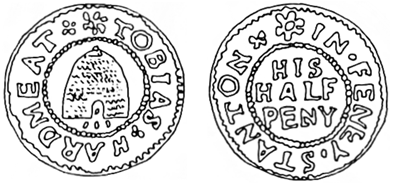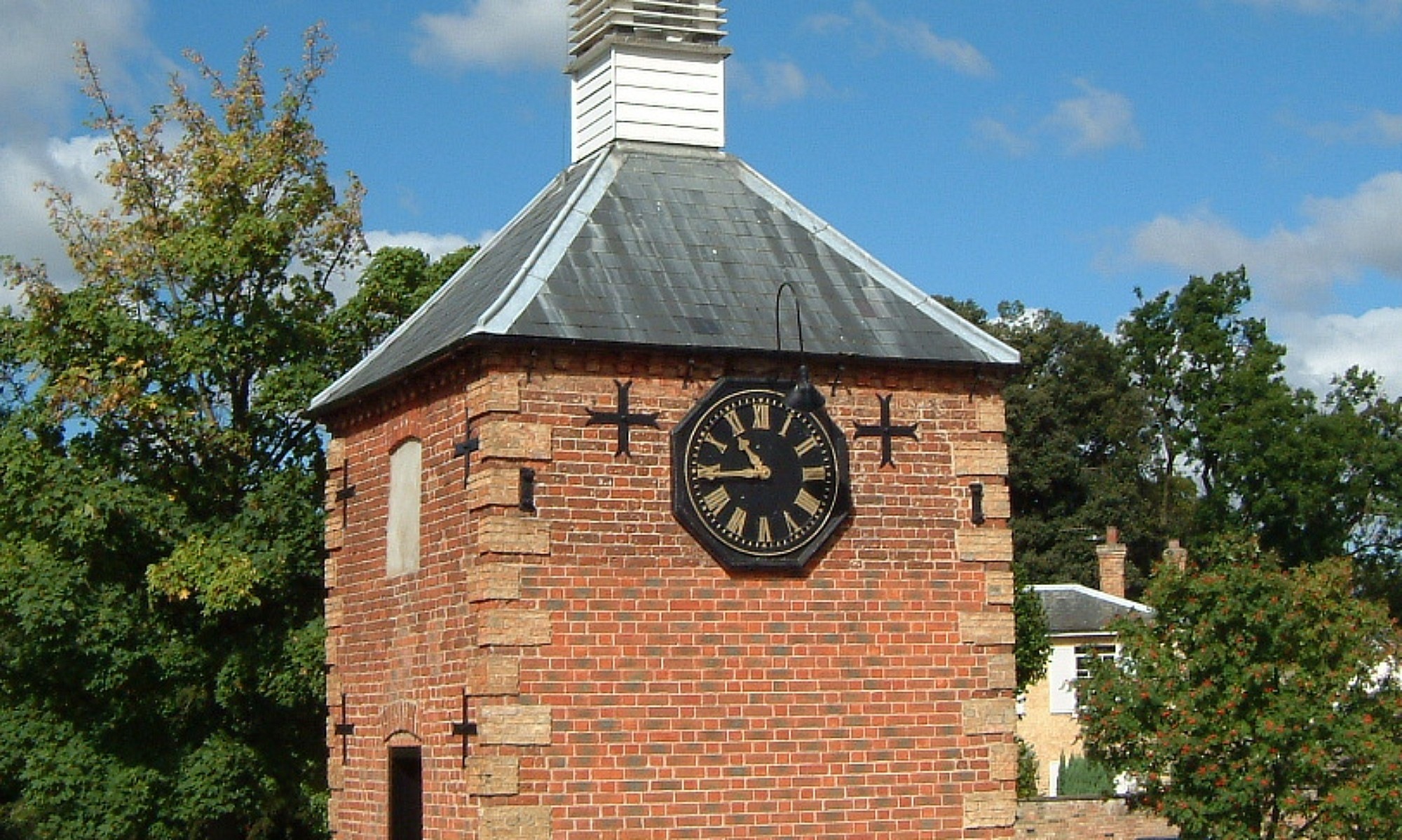Before looking at the affairs of the wonderfully named Tobias Hardmeat perhaps we should glance at the times in which he lived.
During the Commonwealth period the Puritans persecuted one lot of Christians and after the Restoration the Stuarts persecuted a different lot. And then there were the Quakers, persecuted with great enthusiasm by both sides. George Fox preached against the intolerance of the Presbyterians and the Society of Friends (The Quakers) was formed.
These Quakers were quiet tolerant people, preaching no sedition, worshipping together in each other’s houses and were respected by their neighbours for their integrity. What you would call model citizens.
Cromwell directed magistrates to proceed against any who contravened the law on churchgoing although later he did try to protect Quakers from extremists and he granted freedom to all religious groups.
With the Restoration came flat-footed authoritarianism and greater intolerance. A revived Act of Uniformity made it mandatory to go to the Established Church which was not without corruption. God may have given Man free will to follow a chosen path to Heaven, to go to the Devil or wander somewhere in between. The Church of England could not rely on God to see that His creation plodded along the special Church of England path so those missing Sunday Church service were liable to a fine of 12d (5 p). Everyone had to pay a Church Rate for the upkeep of the Church and also a tithe based on what they produced. All Dissenters bitterly resented having to pay for a Church to which they did not consent They were further harassed by being forbidden to hold conventicles, that is meetings for worship in their own homes. The Englishman’s home might be his castle but not his chapel.
It was the duty of churchwardens, village constables and magistrates to exercise vigilance and fine those who erred and strayed from the ways of the Church of England and the Law of the Land. This oppression was not popular even with the guardians of the law and locally village constables and magistrates were hauled up to the assizes for failing to prevent conventicles.
In Huntingdonshire some hundreds of village constables, magistrates and others were prosecuted for not suppressing unlawful conventicles or for not fining absentees from church. Under this pressure of the State there were plenty to obey its demands and punish those who did not use the official words when they spoke to their God. Their wrath fell heaviest on the Quakers whose quiet resistance caused the greatest irritation to pompous officialdom.
The scene in 1669 at the archdeacon’s court at Budgen (Buckden) has a similarity with that of the disciples sixteen hundred years earlier facing Roman officials in defence of their belief.
Tobias Hardmeat, a quiet sober grocer of Fenstanton, greatly respected by his neighbours for his integrity, stood before the archdeacon and was admonished to go to church. Tobias replied that the archdeacon might as well save his breath. The punishment was that his “excommunication was read in Ives Steeple House”. As Tobias did not recognise the sacraments of the Church there appears to be a doubt as to the effectiveness of such a measure.

Tobias Hardmeat’s Trade Token.
Drawing: Norris Museum, St Ives.
The next year Tobias went to St Ives to visit a Quaker friend Thomas Ibott and the house was raided.
Thomas Ibott was an interesting character who foretold the Great Fire of London. In September 1666 he arrived in London and on dismounting from his horse loosened his clothes so that it looked as if he had just got out of bed and walked towards Whitehall proclaiming his vision that the city would be laid waste by fire. He was right.
Returning from London “on his old horse” he called on Tobias in Fenstanton. It was four years later that the raid on his house in St Ives occurred during the visit of Tobias. The fine imposed must have been heavy for Tobias not only paid his own fine but £5 towards the cost of Thomas’s fine because Thomas was a poor man.
Tobias Hardmeat was certainly an active Quaker, possibly a leader whom the authorities watched as a trouble¬maker. In 1675 he attended a meeting in Bluntisham. This time the fine was £10. The robust Tobias said he would not pay two farthings.
The Law took its course to distrain on the property of Tobias and officials of Fenstanton descended to do their duty. There came Overseer Rieland Havier, Warden Mark Morgan and Parish Constable Emmanuel Offley.
To digress a moment, it is noted that four years later a John Offley was summoned to the assizes for attending a Quaker meeting. It is just possible that Emmanuel Offley was of the same family and also a Quaker but nonetheless had to do his duty as Constable.
At the gate of Tobias Hardmeat’s premises the officials had to select livestock to the value of £10. They took two horses worth £6; one cow worth £3 and a feeding hog worth £1 10s. Having removed the animals from Tobias’s land they had to be put somewhere for the night so they were herded into William Sibley’ s field until they could be auctioned in the morning. Bright and early the Town Crier went through the village announcing the sale. Alas! At the sale no one made an offer. The sympathy of the village lay with the Quaker.
This bore hard on Constable Offley for the animals were now in his care and he had to see to feeding and watering them which would become expensive as the days passed. He decided on Somersham as the best chance for a quick sale but the journey of eight miles with two horses, a cow and a hog being driven by one man would not be easy. After having his arm twisted behind his back and his cow threatened with confiscation, Richard Hawkins volunteered to act as drover.
There was a volunteer Robert Alpress but he must have lacked the essential qualifications of a drover in spite of which he went along “hoping for good reward”. At the end of the day the trio returned from Somersham having made only £7 on the sale. Robert Alpress got no reward at all.
Eight years later Tobias spent a year in prison for refusing to pay tithes and five years after this, in 1689, he moved his grocery business to St Ives where he traded for the last four years of his life.
It was in 1689 that the Act of Toleration was passed allowing Dissenters to have a chapel building which had to be licensed by the Justices of the Peace for a fee of 6d (2½p) and there was a proviso that doors had to remain unlocked during a service.
Religious freedom in England owes much to brave humble men like Tobias Hardmeat
By Jack Dady published in Life Magazine September 1988
